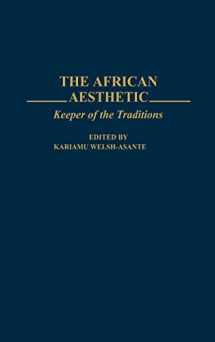
The African Aesthetic: Keeper of the Traditions (Contributions in Afro-American and African Studies: Contemporary Black Poets)
Book details
Summary
Description
While the field of aesthetics has long been dominated by European philosophy, recent inquiries have expanded the arena to accommodate different cultures as well as different definitions and meanings. Aesthetics often establishes the pattern that connects culture functions in a society. In African and African American societies it functions as the keeper of the traditions. The African aesthetic is visible from popular culture to the classical cultures. In all art forms, including body adornment arts, there emerge symbols, colors, rhythms, styles, and forms that function as artistic instruments and cultural histories. While acknowledging African cultural diversity, the focus here is on the commonalities in the aesthetic that make an Ibo recognize a Kikuyu and a Jamaican recognize a Chewa and an African American recognize a Sotho. The deep structure manifest in African cultures in the diaspora is proof of the aesthetic continuity.
The debate continues over the exact nature of African aesthetics, and in this volume scholars and teachers in the fields of African and African American studies approach the subject from a broad range of disciplines. Dance, music, art, theatre, and literature are examined in order fully to appreciate and delineate what the specific qualities and aspects of an African aesthetic might be. Additionally, theoretical concepts and issues are discussed in order to define more clearly what is meant by an African aesthetic. The term African here applies to all Africans, both continental and diasporan, and encompasses historically used terms such as Negro, Black, and Afro-American. This thoughtful and thought-provoking volume will be a valuable addition to the readings of scholars and students in fields ranging from African studies to general philosophy and cultural studies.


We would LOVE it if you could help us and other readers by reviewing the book
Book review



